
views
Signs of Low Cortisol

See if you have symptoms of cortisol deficiency. Many people worry about having too much cortisol, since elevated levels of cortisol can lead to weight gain, fatigue, and more serious symptoms. But having too little cortisol can be just as harmful to your health. If your adrenal glands are damaged or if you have adrenal fatigue syndrome, your body might not be producing a sufficient amount of cortisol to properly regulate your blood pressure and immune system. Here are common symptoms of cortisol deficiency: Weight loss and low appetite Low blood pressure Fainting Fatigue Low levels of energy even when rested Vomiting, nausea and gastrointestinal pain Salt cravings Hyperpigmentation (dark spots on the skin) Muscle weakness or pain Irritability and depression Heart palpitations Lack of enthusiasm For women, body hair loss and decreased libido
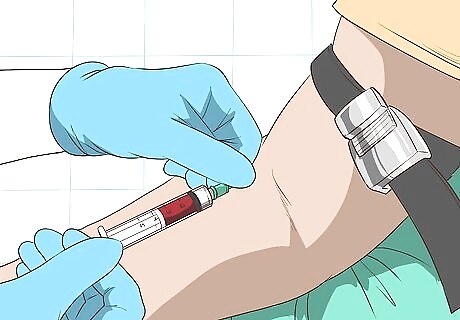
Get your cortisol levels tested. If you suspect your cortisol levels are low, make an appointment with your doctor to schedule a cortisol test. A cortisol test involves having your blood drawn and sent to a lab to check cortisol levels. Cortisol levels are usually highest in the morning and lower in the afternoon and evening, and in some cases your doctor might decide to test you twice in the same day to compare morning and afternoon levels. Your doctor will be able to determine whether you have low cortisol or Addison's disease by comparing your levels to normal cortisol levels. There are several ways of testing cortisol including saliva, blood, and urine tests. Additionally, your doctor may test for other hormones like TSH, free T3, T4, total thyroxine, DHEA, and 17-HP, which can be precursors to cortisol. The "normal" range varies from lab to lab, but in general, the average morning level for an adult or child is 5–23 micrograms per deciliter (mcg/dL), or 138–635 nanomoles per liter (nmol/L). The average afternoon level for an adult or child is 3–16 mcg/dL or 83–441 nmol/L. Be sure to get your cortisol levels tested by a physician, rather than using an at-home method. Saliva testing kits advertised online are not as reliable as blood tests analyzed by a lab. There are a variety of factors that can affect the efficacy of the test, so you may have to get your levels checked more than once. For example, if you're stressed, pregnant, on certain medications, or if you exercised right before the test, that could affect the level of cortisol in your blood.

Determine why your levels are low. Once your doctor has confirmed that your cortisol is low, the next step is to figure out what's affecting your adrenal gland's cortisol production. The treatment your doctor recommends will be in large part determined by the source of the problem. Primal adrenal insufficiency, or Addison's disease, is when your adrenal gland isn't functioning properly to produce cortisol because it is damaged. This can be caused by autoimmune disease, tuberculosis, infection of the adrenal glands, cancer in the adrenal glands, or bleeding into the adrenal glands. Secondary adrenal insufficiency occurs when the pituitary gland, which produces a hormone that stimulates the adrenal glands, is diseased. The adrenal glands may be fine, but since they aren't being properly stimulated by the pituitary, they don't produce enough cortisol. Secondary adrenal insufficiency can also happen when people taking corticosteroids abruptly stop taking them.
Medical Treatments

Start by living a healthy lifestyle. The first step towards getting your cortisol levels balanced and on track is to live in a healthy way. This may include anything from modifying your sleep patterns to changing your diet. Some ways to live a healthy lifestyle and start improving your cortisol include: Avoiding stress Going to bed and waking up at the same time every day, even on weekends Avoiding caffeine and alcohol Exercising Practicing yoga, meditation, and positive visualization Eating avocados, fatty fish, nuts, olive oil, and coconut oil Avoiding sugar, processed food, and microwavable foods
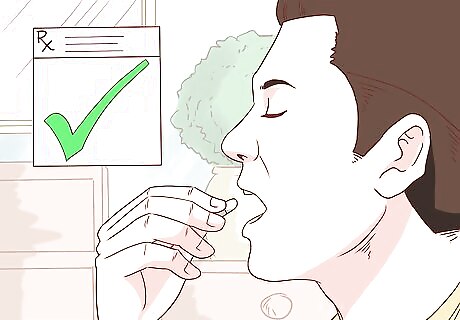
Take cortisol replacement therapy medication. The most common way that western-medicine doctors treat cortisol deficiency is through hormone replacement therapy. If your cortisol levels are low enough to need synthetic replacements, your doctor will prescribe oral corticosteroids, such as hydrocortisone, prednisone or cortisone acetate. Taking your prescription in tablet form every day will raise your cortisone production. You will need to regularly test your cortisol levels during hormone replacement therapy to make sure you don't have too much or too little cortisol in your body. Oral corticosteroids have many different side effects; they can cause weight gain, mood swings, and other unpleasant symptoms. Talk with your doctor about things you can do to mitigate the side effects.
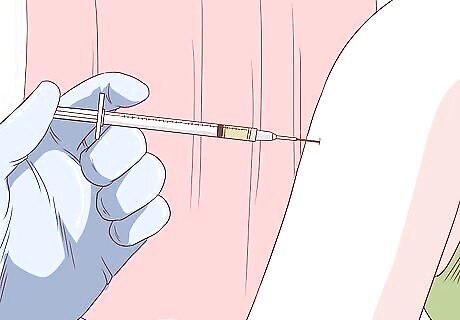
Ask your doctor about cortisol injections. If your cortisol levels are very low, getting into a stressful situation can be dangerous for you. Cortisol helps the body respond to stress, and without it, it's possible for the body to go into a coma. Your doctor may teach you how to administer your own cortisol injections in case of an emergency. When a stressful situation arises, you'll give yourself an injection of cortisol so that your body can adequately handle the crisis without shutting down.

Get treatment for the underlying problem. Hormone replacement therapy corrects the symptom, but not the underlying problem that's preventing your body from producing enough cortisol. Talk with your doctor about treatment options that may help your adrenal glands function at full capacity again. If your adrenal glands have suffered irreversible damage, or if you have a permanent condition that will always cause your adrenal glands to be low-functioning, continued hormone replacement therapy may be the best option. However, if the cause of your cortisol deficiency is related to a secondary factor such as pituitary disease, cancer, tuberculosis, or bleeding, there may be a treatment option that will restore your body's capacity to produce adequate cortisol.
Natural Remedies
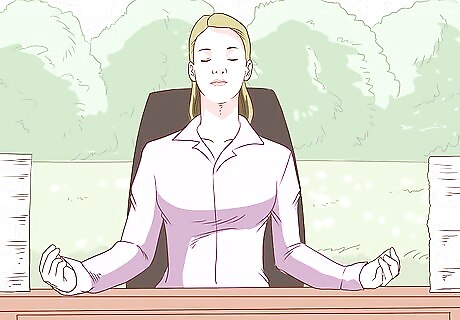
Manage your stress. If your cortisol levels are low, but not low enough to require hormone replacement therapy, it's still important to keep your life as low-stress as possible. Learning to manage and reduce stress in your life will allow cortisol to gradually increase in your system instead of being produced all at once in high-pressure situations. The more stress you have, the faster your cortisol will get depleted. Try stress management techniques like journal writing, yoga or meditation to teach your body to produce cortisol regularly and maintain healthy levels.
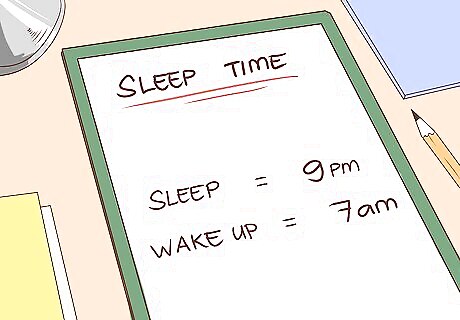
Maintain a regular sleep schedule. The body naturally produces cortisol during the hours when you're sleeping. Get 6-to-8 hours of sleep per night and try to go to sleep around the same time each evening. Create a peaceful environment with no light or noise to get deep sleep and aid cortisol increase.

Eat a balanced diet. Foods high sugar and refined flour can cause cortisol levels to spike or drop to unhealthy levels. Eat plenty of whole grains, fruits and vegetables to help raise cortisol levels to a healthy amount.

Eat grapefruit. Grapefruit and citrus break down enzymes that limit cortisol production. Adding grapefruit to your diet on a regular basis can help your adrenal glands boost cortisol production.
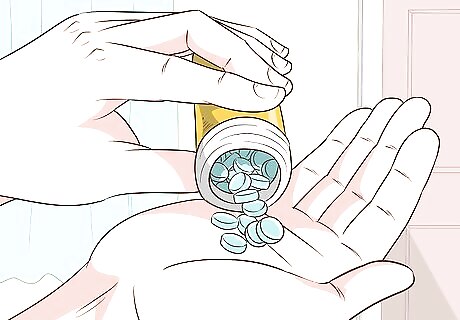
Try a licorice supplement. Licorice contains glycyrrhizin, which inhibits the enzyme in your body that breaks down cortisol. Inactivating this enzyme will help you gradually raise cortisol levels. Licorice is considered a very useful substance for boosting cortisol. Look for licorice herb supplements in tablet or capsule form at a vitamin or health food and supplement store. Avoid using licorice candy as a supplement. It doesn't contain high enough amounts of glycyrrhizin to be useful.

Eat high-iron food. This can help increase your energy if you are facing fatigue. Natural iron supplements can be taken if you need an increase in energy as well.




















Comments
0 comment